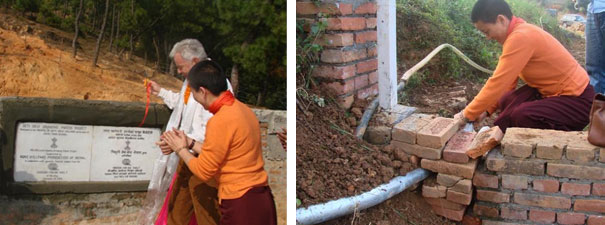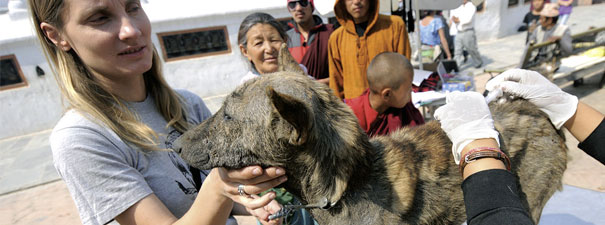Kidney Hospital
Nuns' Welfare Foundation of Nepal (NWF)
Kathmandu, Nepal
For this reason, Ani seeks to establish a kidney hospital in Nepal, where quality dialysis, and kidney transplants can be offered at affordable cost. Two hospitals in Kathmandu have recently started kidney transplantation service, but still it is not up to the mark. NWF has made a donation of Rs. 1.9 million to the National Kidney Center to assist in availing such service to the poor and needy patients.
The government of Nepal had pledged to allocate some land for the proposed kidney hospital. However, this has yet to materialize and can be attributed to the political upheaval and transition witnessed in Nepal over the last few years. We are still optimistic and are urging the concerned authorities to fulfill their commitment towards this cause.
Pure Drinking Water Project
Kathmandu Valley, Nepal

With the financial support of Stifung Water Fuer Die Welt, Germany, the pure drinking water project was started in 2006. This project has not only served as a reservoir of water, but furthermore, the locals of Seti Devi VDC have been able to distribute the water through pipes to individual homes. Thus, they have access to clean drinking water from taps in their own homes, rather than make an ardous journey to manually carry water in portable vessels. The project has distributed 235 private taps, and 7 public taps . The women of Setidevi are most appreciative and grateful of this facility.
Bio Gas Production
Street Dog Care
Kathmandu valley, Nepal

Resources
Official Website:
In the News:
Spreading Happiness Among
Street Mongrels (PDF)
New Hope in Nepal (PDF)
Modern Dog
Magazine, Fall '09
Over 25,000 stray dogs wander the streets of the Kathmandu valley. Most of these dogs live in a miserable state, suffering from disease, malnourishment and ill treatment.
The Street Dog Care Camp was established in February 2009 at Boudha Stupa. Every Saturday the SDC Camp team, consisting of two local veterinarians and volunteers, treats street dogs for skin diseases, infections and injuries. Every dog is de-wormed and vaccinated against rabies. Dogs in serious condition are treated at a veterinary clinic and cared for at the SDC Centre until they are fit to go back to the street or to be adopted.
Regular weekly camps are planned to take place simultaneously in several locations to provide care and information on the spot. Since the camps are held in public areas,they have an important role in building community awareness and support. People are encouraged to bring sick and injured street dogs from their neighbourhoods.